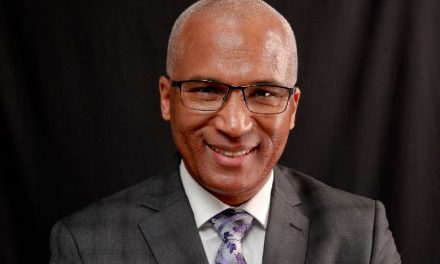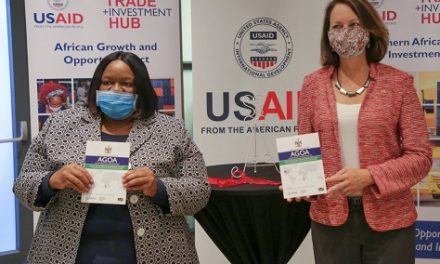
Changes to NamPower’s status imminent
NamPower’s status as the sole buyer of electricity will soon come to an end if government approves a recommendation by energy regulator, the Electricity Control Board. (ECB) to have many players in the sector.
Siseho Simasiku, CEO of the energy control board told the Economist this week that they recently finalised a study with input from industry stakeholders, that if approved, will do away with the current single buyer model that allows Nampower to be the only company in the country that buys and sells electricity.
Simasiku said: “In terms of what we call the single buyer model, NamPower buys and sells all the power, but now a decision has been taken to modify this. The modification is such that if there is a consumer or customer who would like to buy directly from an Independent Power Producer, say a mine, they are allowed to do so.”
The energy regulator supremo said consultations with government on the matter have reached an advanced stage, and amendments to the Electricity Act will probably be introduced before the end of the year. “We have agreed on the basics. We are just touching here and there. It can still be done before the end of the year,” he said.
According to proposals contained in the study now sitting with the Ministry of Mines and Energy, Independent Power Producers will still not be allowed to sell their power outside Namibia. The only exception is when they sell their power through NamPower.
If the new proposals come into effect, they will come as a huge boost to companies involved in renewable energy generation projects that have been struggling to agree on power purchase agreements with NamPower. The state power utility has been accused of frustrating investment in the energy sector by refusing to sign power purchase agreements, an accusation that MD Paulinus Shilamba has denied.
Shilamba told journalists in December that renewable energy sources are expensive and they cannot be forced to sign a power purchase agreement which is expensive.
“The average price of energy generated in the Nampower system is 45c per kWh. A solar power plant will not generate power at a cost less than N$1 per kWh. Who is going to pay for electricity at such rates?
“We are not frustrating Independent Power Producers. We cannot just be forced to sign a power purchase agreement which is expensive. NamPower is willing to sign a power purchase agreement as long as the power, tariffs and technology used, is right. We have not been approached by an Independent Power Producer who is willing to sell electricity for less than N$1 per kWh, “ he said at the time.
Simasiku said the non- existence of power purchase agreements with Independent Power Producers is a cause for concern. He added: “In all fairness I must be honest that we are collecting a very bad name for us in the world that we do not allow investment into this country. Even the politicians are saying the relationship between what we are doing and the number of people that are on the streets [makes] it look like we are not sensitive to that.” He, however, highlighted that some of the problems are not only restricted to power purchase agreements alone. He said they have identified about five or six problems that were stalling progress in energy investment in the country.
“There are issues to do with certain risks that have been identified that have an impact on projects funded by people from outside. These include things like the change in the law. You see investors ask a question that if for instance government one day decides that NamPower should not have [the] structure that it has, [it] will have a negative effect on the business that they are doing. Who takes the risks; is it Nampower or the business itself?”
He said the other risk that is there is the tariff. “Renewables are relatively expensive but the comparisons between renewables and the conventional sources like coal is such that in a very few years renewables will be much cheaper.
“It is the same situation that we have with an emergency power plant like Van Eck which comes during certain times, the costs related to maintaining Van Eck, keeping it until such time when you use it, are enormously high, they are even higher than the renewables.
“Nampower and ourselves we are talking. The problems that are there – we are going to deal with them together but I must mention that if we don’t move fast enough, the name of Namibia as an investment destination in Southern Africa is going down.
“Somehow whether we accept it or not, the fact is we have companies that have had licences from 2007 and they have not done anything so far because of certain problems which we have to solve. I can tell you that there is a lot of experience around us countries like Ghana, Tanzania, Kenya even Zambia [in] the way they are dealing with investments in the energy sector. Why don’t we go and learn and see how they are dealing with issues of risks and things like that.
“We have seven or eight licensed Independent Power Producers but none of them have power purchase agreements. The most important thing is not the licence that come from the ECB but the power purchase agreements.”












































